Calendar finale 2012 miraculously witnessed Arsenal removing the pesky “handbrake” to which manager Arsène Wenger so often refers (why would any team so repeatedly employ such an antiquated and momentum-killing device?) and the team won four successive matches in December: the crisp 2-0 v. West Brom, followed by the toyingly awesome 5-2 v. Reading, the limp but who cares 1-0 v. Wigan, finally concluding with the scoreline-busting 7-3 v. Newcastle. Suffice it to say, two of the four failed to feature historic defensive displays from either side. But no gripes with goals. No, sir. Midfield marshal Santi Cazorla could have even pushed those scorelines higher if ballhog teammates reciprocated on occasion and passed to him on his own forward runs. Theo, to your direction this last statement looks.
After all the negative press bullshit, we marched into the Boxing Day match in fourth place. Fourth! Unexpected, perhaps undeserved, but definitely level with three other teams and above on goal difference. In times like these, one takes the good when it arrives, no questions asked, without a single horse chomper inspected. Then the London subway/tube strike saw the West Ham match postponed while everyone level on points with us won and left us three points behind. Rested, on the 29th, Theo Walcott, Alex Oxlade-Chamberlain, Lukas Podolski and Olivier Giroud then went delightfully über-nuts on Newcastle in the end-of-year goalfest extravaganza, two of those tied-for-fourth fools lost, and we now sit fifth, with a chance to overtake/draw level with Tottenham if we do manage to win the postponed game against formerly resurgent West Ham. And thanks to two certain lopsided scorelines, we continue to pack a superior goal difference.
A bit of union-dispute luck arrived for old Arsenal on December 26, in that the tube strike gave the team a welcome breather. West Ham, though not currently as good as when the Hammers roared out of the gates and back into the Premier League early season, are still good, and the game would have made for three matches in 8 days. Same as everyone else, except then it wasn’t, which can’t but have helped in delivering fresher legs and fewer squad rotations to the second match, where we happened to especially turn it on in the second half against tired Newcastlian legs. Newcastle had just lost a hard-fought 7-goaler against Manchester United three days previous while the Gunners enjoyed their gift certificates for training ground spa days. A postponement in the middle of the Christmas fixture congestion suited us just fine. Perhaps we even engineered the tube strike, and if so, well played, Arsène. I think maybe I get the handbrake thing now.
As to any potential West Ham fear factor, we can get a result against them, almost definitely. Probably. However, there’s still that fundamental uncertainty, not to mention the more certain uncertainty had we faced them in their best run of form. They’ve been above us in the league table for most of the season. As fans, we enter the match with some trepidation. As red flags go, that flaps about as one that bespeaks/be-signals neither a title-contending nor a top-four state of mind. Until we make up the postponement, people will spout off about the “game in hand” as if it’s merely a formality, which just seems asking for a reality check. I, for one, will not do so. I don’t like reality checks in the form of boxed-ear reprisals, fiscal cliffs and least of all in the form of humiliating Arsenal losses.
Even before the Newcastle demolition, the season has revolved around the fates of three people: Robin van Persie, Theo Walcott and Arsène Wenger. (Cazorla and Wilshere get the occasional shout-out.) One already departed, the other threatening and the third beset by villagers with pitchforks and short memories baying for the blood.
Gone are the days of the “Bould effect” and the initial wow factor of Cazorla (who quickly became my favorite player on the team, except maybe Wilshere, or Arteta, maybe Sagna, Szczesny for spirit, Frimpong for the thuggery). It’s all about recriminations of how we let RvP get away, the contract hell of Walcott and the scapegoat for both, the manager.
Fearing that this post would fail to eclipse my previous longest, I asked two friends to weigh in on their thoughts at year’s end. (Note: both sent words before the Newcastle match, which may have changed perspectives. A stomach flu has set me back to the proverbial eleventh hour of the year.)
Roland A. – “I don’t really have any particularly deep thoughts about The Arse at the moment. Just that Wenger is probably near the end of his rope, he knows it, but the marriage/relationship he and the board seem to share make a divorce such a difficult, and still at this point, improbable proposition. I don’t know exactly what it is that he seemed he used to have—motivational nous? Contagious belief? But it does appear to have deserted him, and the squad. Really just hoping at this point that 1) he signs 1 or 2 quality attacking options, and 2) he somehow manages to modify his seemingly rigid tactical beliefs to reflect what’s happening on the pitch. I realize that only the first has any decent chance at taking place.”
Sean F. – “Despite the recent results, we need to buy another striker, another defensive mid with some steel and keep Walcott. We are still in 4th place with all the dropped points and fan backlash (a whole another blog), so we just need a good run and some health fortune. Arsenal is so much better when we play with pace and directness. If you look at the tables, our defensive record is not that bad but the lack of scoring is why we end up in ties.”
Wenger, Walcott and the ever-present specter of the departed van Persie.
Let’s start with the second, taking at face value and a minimum of derisive snorts that Walcott’s stalled contract really is about him playing as central striker and not about him wanting something so grubby as the most money at the club.
Walcott is the king of consistency in patches, his words (well, not the “king of” part). Any club that gambles on him–including Arsenal–has to know this, unless he cocoons and caterpillar-transforms into something majestically different than the stop-start-backslide player of the past seven years, where he has reigned as the quintessential mindfuck for Arsenal supporters. He’s just as likely to score a back-to-back hat trick as he is to go the rest of the season scoreless. Especially as the contract situation rumbles. The inner pessimist says he’ll perform out of his skin until he signs a contract extension and no further (until the next contract extension talks begin). So, don’t extend, you say. But then you freeze up, knowing how amazingly he’ll perform elsewhere. But then you relax, remember who you’re dealing with, then tighten, relax, freak out, go full-jelly, then suffer a cardiac infarction. This isn’t a yogic stress relief exercise, it’s Arsenal fan hell.
And like Walcott in particular, Arsenal as a whole confounds and spellbinds because one never knows what team will show up and what fans will get on any given matchday. (There’s anxiety medicine out there for this condition, and yes, every Arsenal supporter should take it.) This is where the narrative comes to Arsène Wenger. (As always, there is no need to actually address van Persie directly. He is like the Ghost of Exceptional Single Season Past that shall forever haunt the present and future.)
Suman, site co-founder with Sean (different than the aforequoted Sean), suggested charting the ups and downs over the course of the year, starting with the best striker in the land Robin van Persie, then the backlash against Wenger, the backlash against the backlash, the backlash against the backlash against the backlash, etc., ad infinitum. Arsène got whiplashed something evil with backlashes all year, with the occasional reprieve in light of a mirage Bould effect or super-signing like Cazorla. Short text version: any such chart, even with all the sharp peaks and nadir valleys, goes steadily down over time like the worst stock pick ever. And then buoys back up every so often just to mess with your head and set you up with a Champions League showdown with Bayern Munich who will totally murder you.
Anyhow, Wenger and the ups and downs. To sit fifth at year’s end, after the all the “Arsène OUT!!!” signs, the post-Bould-effect meltdown and the overall freakouts in general lands somewhere between miracle and justice. As an outsider American who (rabidly) digs the team, I’m always astounded by how maliciously gleefully fans, journalists and haters alike pile on the criticism after any poor showing, regardless of their own particular allegiance. And though I generally publish posts when Arsenal’s doing poorly, as there’s usually more to talk about re: team improvement, the manager and the team deserve props right now, even as a “club in crisis.” They’re grinding out the exact species of results detractors declared impossible, as Wenger had so fully lost the plot.
That said, the argument can still be made that the team is not entirely sitting pretty. Be that as it may, better a fifth place crisis (“don’t forget the game in hand…”—shut it) than one perched further down the table.
For months the makers of facile critiques have taken easy jabs at Arsène, just like every other season since the last trophy (the FA Cup in 2005, in case it hasn’t been seared into the neural hide of your mind from the millions of times it gets incandescently referenced). After seven trophyless seasons, more than a few have taken a swipe at Arsène and his failed youth project—the one that developed Cesc Fàbregas, Alex Song, Theo Walcott, Jack Wilshere, Wojciech Szczesny, and no-talent ass clowns like that. The same constituents have had their easy snarky goes at Arsène’s idiocy at keeping “perma-crocks” like Robin van Persie who’d never stay fit for an entire calendar year and/or season and become the highest scorer in the league, most likely for two seasons running.
Before the youth project, he fished the seas of France and French-speaking Africa, as if there were any use in that. Nobodies from Africa like Lauren, Song, Nwankwo Kanu, Emmanuel Adebayor, Kolo Toure came and went. From France, Nicolas Anelka, Thierry Henry, Patrick Vieira, Robert Pires, Bacary Sagna, Gael Clichy, Samir Nasri, Emmanuel Petit plied their trade, but since they’re essentially nobodies they hardly merit mention.
Also, if some of those ersatz diamonds in the rough seem distant memories, it’s because they are, although you can still visit a few in Barcelona or Manchester if the mood arises and they haven’t yet been sold off like some sub-par Hleb, Flamini or François the Used Car Salesman (if you haven’t checked out the bizarre extramarital alterego of Kolo Toure, treat yourself now).
Many of those talents—young, Francophonic or both—left for other teams, which theoretically strengthens the argument for those who wish to grumble. Before Arsène, those ass clowns were unknown, but how dare he sell off such now-household names? Whether ironically ungrateful or not, people switched the criticism from “What does Arsène see in these losers?” to “Why does Arsène so idiotically fail to tie these world-class players to lucrative long-term deals?”
A critic’s mantra: Move the goalposts and you’ve always got a job.
Fair enough. While Arsène might be the perfect early career manager for many players, it’s clear that the team has failed to keep many of those same players because they want titles and Arsenal hasn’t exactly been flush with them of late. (They could have stayed and actually helped deliver those titles, but we can all agree that at this point, it’s a moot point.) Maybe it was a board issue, maybe an egomaniacal manager pathologically opposed to spending money, but no matter the case, these players left, and in latter years the players left without titles in the cabinet.
Wenger has made some mistakes and some gambles have blown up in his face like they were Acme Goods and he, Wyle E. Coyote. Fifth place (like third last year) owes largely to a couple players majorly saving us at crucial moments. Cazorla has proven one of the best signings of the trophyless years–a recent one at that, and none too soon. Carl Jenkinson and Per Mertesacker drew heavy criticism until a season later when they emerged as integral players during a difficult spell, namely the departure of our one-man offense. Third-choice goalkeeper Vito Mannone saved the collective bacon when he manned the sticks during Szczesny’s longer-than-expected absence. The emergence of quality from unexpected places has helped compensate for the elephant-sized void where Robin van Persie pulled the whole team on his back last year (himself emerging from the void resulting from Cesc’s departure, Cesc the previous player who pulled the team seemingly single-handedly after Henry, and so on).
I just wish the commentary so often leveled at the team and its manager not be made in such snap-tackle fashion. When you consistently reach the top four with an “abysmal” squad, perhaps it’s not just dumb luck. Arsène has been a great steward for the club. Not to say we didn’t get lucky at times or that we’ll finish in the Champions League spots this year, but the league table generally tells it as it is, especially with regard to year on year. If Arsenal must always feel the brunt of fans pointing to a non-ideal standing in the table, those same fans should likewise give the team credit when they claw their way back up. However, criticism is obviously easier.
Ridiculed for losing to Norwich, the team has now seen many go down to the very same, including Manchester United. We lost to Swansea. Again, they just held off the champions to possibly be.
But though the team situation looks better now than a month ago, or during the summer when van Persie declared he was off, or last year during the fullbackless slide in January/February or the cataclysmic August after the departure of Fàbregas and Nasri, the manager and the club look more than ever like they will part ways. In many ways, this year’s Swansea and last year’s Newcastle demonstrate both the problems at the club and the changed idea of the manager who changed English football. Fortunately, the team we just faced was this year’s Newcastle, not last year’s.
Managers across the league now monitor diet, fitness and spreadsheets the way Wenger once did alone among the crowd. If Wenger arrived in England the only economist versed in Moneyball (or Soccernomics) analysis, most likely have the tomes on their bookshelves now. Wenger’s schtick was once plucking rough chunks of stone from faraway shores and transforming them into gems (Henry, Vieira, Anelka, Fàbregas, Adebayor, Nasri, Song, van Persie), but now that list reads like a who’s who of who left the club for better money or better title contenders. Arsenal scouts that once unearthed the finest Francophones in Africa seem to have been bested by Alan Pardew. Demba Ba, Papiss Cisse, Hatem Ben Arfa, Cheikh Tiote and Yohan Cabaye seemed tailor-made for Arsenal but rocketed Newcastle (near) the top instead last season. Instead of them, nowadays we get Marouane Chamakh and Gervinho.
With Swansea, the Welsh underdogs have perpetrated another episode of Wenger identity theft. Overlapping fullbacks bomb forward, names emerge from obscurity, and Laudrup (using Rodgers’ leftovers) produces soccer that’s both easy on the eyes and the managerial checkbook. Michu is the Wenger signing that wasn’t, and not because a bigger wallet came in and snatched the player away before we had a chance. As someone who can’t help but read up about any player linked to us in a transfer window, I never heard the faintest whiff of a link to Michu, who racked up an impressive 15 goals in La Liga last season and looks exactly the sort of buy Wenger once would have made—in for cheap and then a sensation in the league. Cazorla shows Wenger still hasn’t entirely lost that side of his repertoire, but their price tags stand miles apart. Arsenal still got a fantastic deal, but £2 million and £15 million don’t represent parity. More egregiously, though, Swansea passed the ball with attacking fluidity, out-Arsenaling Arsenal at Arsenal’s home ground.
Fans used to the success and genius that Wenger brought to the Premier League increasingly call for the manager to go. I didn’t see it happening, even last year. But now, more than at any other time, I see Wenger fulfilling his contract and moving on. The differences are not irreconcilable from Wenger’s perspective, but the fans make the relationship increasingly untenable whenever the team goes through a bad patch. Frankly, we no longer deserve Wenger and his loyalty. Arsenal fans are looking more and more like a pack of ingrates. Realistically, who would replace him. What top manager will swoop in and do everything right that Wenger does so horribly wrong? There are many top managers, but something tells me Pep Guardiola, Jose Mourinho, et al, would prefer Manchester United over Arsenal.
Before I forget, getting back to Sean F.’s comment, yes, we need a defensive midfielder. We also need another striker. The specter of Robin van Persie is more than just the goal colossus himself–his absence swells to the lack of all the others who left and were not adequately replaced. It’s the unreplaced Alex Song DM, the unreplaced Nasri, Adebayor, Gilberto and other key pieces left missing when so many top players departed. Cazorla, Podolski and Giroud strengthened the depleted squad hugely, but Cazorla is the only player to come close to providing the spark and precision that Cesc provided. And the exit list still includes: Clichy, Kolo, Gallas, even Flamini and Hleb. Vieira and Henry started it off, and it just kept on going.
Meanwhile, striker-in-training Walcott throws toys out of prams and threatens to go, theoretically to be lone striker at some other Champions League club. Arsène has deployed him in his “dream position” as lone striker the past few matches, which could be seen as a concession for contract talks or an admission that anyone’s better than Gervinho, given Giroud’s illness. Either way, it has worked (so far) and perhaps may induce Walcott to sign a contract extension. Except that’s never really been the issue and isn’t really what has prevented Walcott from signing. He wants more money and his patch of consistency is surely almost up. (Prepare yourself for a bit of a diatribe. Kind of like the last one.)
He’ll sign or he won’t, he’ll stay or he’ll go. If go he must, go he should. Chase the cash, Theo, by all means. However, if he expects to play as lone striker for a Champions League club in the UK or anywhere, really, he will soon find out how much of an idiot he is, something many came to the realization of long ago. His pace makes him good to great on the right flank, but only when the defense gives him space, something they’ve learned not to do, and something they’ll certainly stamp out if he’s in the lead role. He has Henry’s number, but he’s nowhere close to Henry. To be fair, few are.
So go, Theo, go. Arsenal confounds its fans, delights its detractors when the club does poorly. He’ll be making someone happy, at the very least. And if he stays, he should stay as a backup striker. As shown at the end of the Newcastle match when he shunted off to the flank to give Giroud centrality and then put in good crosses and finalized his own hat trick. he can make it happen from the flank. Funny that, as it’s his best, if not preferred, position.
Things may get worse before they get better. Fifth at the halfway point means nothing. Inconsistency has become the Arsenal status quo, just like our mascot Theodore. The day that a player like Theo truly holds the club’s fortunes at his feet has not yet arrived, however. Giroud, for all the negativity leveled at him (until recently), is a real center forward. May he get fully well from illness soon, and may he help the club get truly fit and solid, as well.
For midterm status reports, Cazorla, Podolski and Giroud all have delivered as players midway through their first Premier League season. (Giroud took the longest to contribute, but he did just score a brace against Newcastle, where Podolski and Cazorla had a hand in nearly all the positive proceedings.) Mikel Arteta and Per Mertesacker have held it down in their second seasons. As new returnee Jack Wilshere can attest, the team is all new, and it’s not all bad. With Wilshere, Aaron Ramsey, Oxlade-Chamberlain, Kieran Gibbs and Carl Jenkinson having all just last week signed on the dotted line, the blueprint of the club’s future is there. Keep Cazorla and the other new boys and it’s still a team in contention. Whether for “trophy” fourth or an actual trophy, we’ll see. Perhaps it will have to wait another year. One way or the other, the season, for all its ups and downs, provides optimism for the future. If others feel different, fine.
Dismiss the Arsenal and, like a departure-scenario Theo, prepare to find out that it’s not always so simple. Arsenal may no longer be a glamor team, nor Wenger the revolutionarily gifted Professor. Arsène should not go. Theo can if he chooses, but best for all if he stays. Stay, Theo, stay. Or go. But know your strengths, know your place, or see you on the Liverpool bench. Or on the right flank. You can get the money you want, if that’s all you want.
Theo provides assists and can display some classy finishing, but anyone who has seen him week in, week out, knows he’s not a Berbatov fox in the box or the second coming of either Thierry Henry or Robin van Persie, the chocolate-legged inner-child-crying-for-United boy wonder.
Anyhow, Walcott’s probably off, most likely on a Bosman at the end of the summer, though January can’t be ruled out. Or he’ll sign the deal and either will or won’t start sucking again. Regardless, his stock has risen in the past few months from the hat trick at Reading in the Capital Cup, the past three matches away to Reading and Wigan and the year-end blowout at home against Newcastle, which must rank as the match of his life. Just before the transfer window opens…
Clubs want him. Champions League clubs want him. Just not for starting striker. He could have a career as an impact sub or the speed demon on the right flank, but he’s unlikely to replace Torres, van Persie, Tevez or Aguero. If Spurs end the season in the top four and clinch qualification for the Champions League, they’d gladly forgive his Arsenal past (especially as a fuck you to Arsenal, landing one of our top players and righting the Sol Campbell wrongs), but he wouldn’t replace Jermaine Defoe or whoever else does replace Defoe. Imagine the reception Adebayor and Walcott would get at the Emirates as the two strikers. It nearly makes you want it to happen. The scenario of them being booed in tandem may come to pass, just not as the “strike partnership” part, and by then Adebayor must certainly will have burned bridges at yet another club. Scoring one goal thus far this season is the first step. That and getting sent off, leaving the 10 remaining men to get hammered 5-2 by their fiercest rivals, namely us.
A lower level team would give Walcott a striker berth, but if he’s too big for 75,000, he’s too big for anything like that. He’ll stay in England and he’ll want a Champions League club.
Okay, enough Walcott speculation, except to say finally that I hope he excels for as long as he wears the Arsenal colors. After that, as long as he keeps his mouth shut about Arsenal, come what may.
Having Wilshere back in the team is huge. He missed far too much football, but he’s getting back into the groove again and the growing understanding between Arteta, Cazorla and the English bulldog can only continue to develop and grow. Podolski and Giroud look increasingly more comfortable in the team and in the league and all signs point to that going yet further in the right direction. The team sheet has utterly changed in the time period separating Wilshere’s injury at the meaningless Emirates Cup in August 2011 and his return this season and his recent return. Cesc, Song, Nasri, van Persie and Clichy out; Arteta, Cazorla, Podolski, Giroud, Jenkinson, Mertesacker, in. The captain of the South Korean national team even came and went during that period. Park Ju-Young, we hardly knew ye.
Having Cazorla in the team is huge. Podolski, Giroud, Sagna, Mertesacker, Vermaelen, Rosicky, Gibbs, Oxlade-Chamberlain, Arteta, Jenkinson, Szczesny. I’m not intentionally trying to list the starting XI (obviously, since there are two right backs) but these are the ones that stick out in my mind.
Henry left. Then Cesc. Then Robin. Walcott may. But if Wenger goes–and the odds no longer look so different from that of Walcott–it will be something totally and utterly different. And awful.
But for the moment the Boss is still here. And kickoff kicks off against Southampton sharpish tomorrow, our first match of 2013. Hopefully there will be more rejoicing, fewer backlashes and a nice tidy 2013 line that charts steadily onward and upward.
Come On You Gunners!

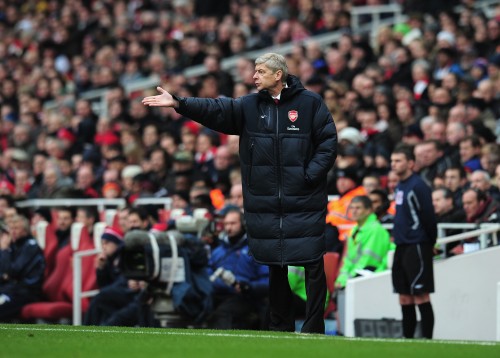
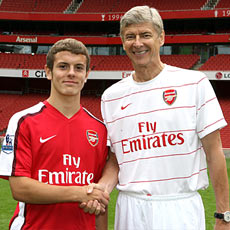
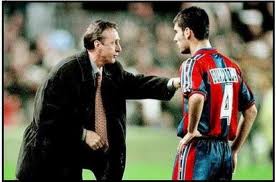
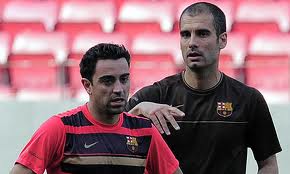
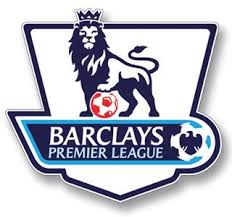 The 19th Premier League season begins on August 14th with an exciting round of opening fixtures, including last season’s 4th and 5th placed teams,
The 19th Premier League season begins on August 14th with an exciting round of opening fixtures, including last season’s 4th and 5th placed teams,